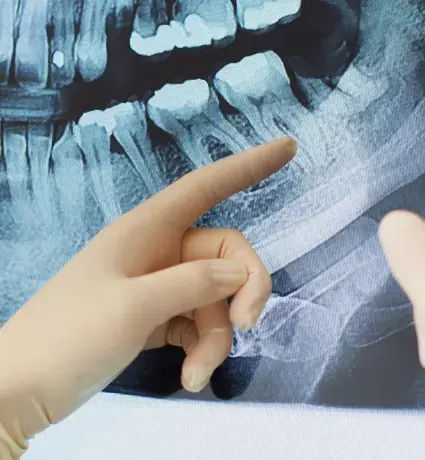
Dental Misdiagnosis Claims: What You Can Do and How to Get Support
When you visit the dentist, you expect a clear diagnosis and the right treatment. But when things go wrong - such as a missed or incorrect diagnosis - the results can be painful, stressful, and costly. At Smith Partnership, our experienced clinical negligence solicitors help clients across the UK claim compensation after suffering from a dental misdiagnosis.
Understanding Dental Misdiagnosis
Dental misdiagnosis occurs when a dentist fails to correctly identify or diagnose a dental condition. This can result in either unnecessary treatment or a lack of essential care, leading to worsening symptoms or long-term complications.
You may have grounds for a dental misdiagnosis claim if your dentist:
- Ignored or misinterpreted symptoms
- Failed to order or review X-rays correctly
- Diagnosed you with the wrong condition
- Missed signs of serious illness like oral cancer
The effects of a misdiagnosis can be serious, ranging from prolonged pain to irreversible damage.
Common Types of Dental Misdiagnosis Claims
Dental misdiagnosis can take many forms. Some of the most common claims include:
- Nerve injury - Nerve damage during dental procedures can result in pain, numbness, or loss of function in areas like the jaw, lips, or tongue.
- Oral cancer - If a dentist fails to investigate symptoms such as lumps, persistent sores, or unexplained bleeding, a potentially life-threatening diagnosis may be missed.
- Dental abscess - An untreated or undiagnosed abscess can lead to severe pain, infection, and complications requiring urgent care.
- Misdiagnosed decay or gum disease - Missed cavities or signs of periodontal disease can lead to tooth loss and ongoing oral health problems.
Even one missed diagnosis can lead to long-term health issues. If this has happened to you, it’s worth speaking with a solicitor to find out your options.
What’s the Difference Between Failure to Diagnose and Failure to Treat?
Although closely related, failure to diagnose and failure to treat are distinct:
- Failure to diagnose means the dental professional missed or misidentified the condition altogether.
- Failure to treat refers to neglecting to offer appropriate treatment or providing the wrong type of treatment after diagnosis.
In many cases, a failure to diagnose will lead to a failure to treat - making your situation more complex and potentially more damaging. A solicitor can help determine what has occurred in your case and what can be done about it.
How Do I Make a Dental Misdiagnosis Claim?
Making a dental misdiagnosis claim begins with speaking to a qualified dental negligence solicitor. To pursue a claim, you must show:
- The care you received fell below a reasonable standard
- This failure directly caused you harm
Our team helps you gather the necessary evidence, including dental records, medical reports, and expert witness statements. We’ll guide you through the claims process and negotiate on your behalf to secure the compensation you deserve.
How Can We Help?
If you’ve suffered harm due to a dental misdiagnosis, get in touch with our specialist medical negligence solicitors. Contact our team by telephone on 0330 123 1229, complete our contact form, or send us an email via info@smithpartnership.co.uk

Share this article






















